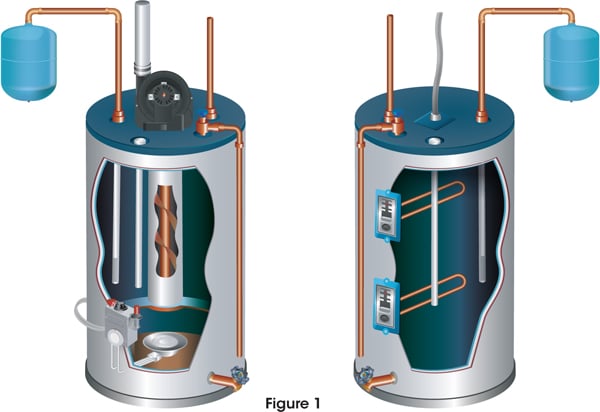As many adjusters know, water heater failure often leads to significant property damage. Water heaters have an average lifespan of 10–20 years, but that can be significantly reduced without proper routine maintenance—substantially increasing the risk of failure.
According to an IBHS study, 69% of all water heater failures result from a slow leak or a sudden burst. A residential water heater holds 20 to 80 gallons of water, which can cause significant water damage to property upon failure. On average, residential water heaters cost only $1,500 to replace, but a leaking or burst water heater typically tacks on over $3,000 in additional property damage, not including any additional living expenses that may be incurred. Adjusters need to handle these claims with care, as the exact cause of the damage may or may not be a loss covered by the policy.
|Internal rust/corrosion
The most common reason for a leaking water heater, internal rust or corrosion, often results from a lack of routine maintenance. By periodically checking the water heater for any signs of rust and performing preventative maintenance, property owners can prolong the life of their water heater and greatly reduce the risk of premature failure. Two primary causes of tank rust or corrosion are failing to replace the sacrificial anode and allowing scale to build up.

Recommended For You
Want to continue reading?
Become a Free PropertyCasualty360 Digital Reader
Your access to unlimited PropertyCasualty360 content isn’t changing.
Once you are an ALM digital member, you’ll receive:
- Breaking insurance news and analysis, on-site and via our newsletters and custom alerts
- Weekly Insurance Speak podcast featuring exclusive interviews with industry leaders
- Educational webcasts, white papers, and ebooks from industry thought leaders
- Critical converage of the employee benefits and financial advisory markets on our other ALM sites, BenefitsPRO and ThinkAdvisor
Already have an account? Sign In Now
© Touchpoint Markets, All Rights Reserved. Request academic re-use from www.copyright.com. All other uses, submit a request to [email protected]. For more inforrmation visit Asset & Logo Licensing.







